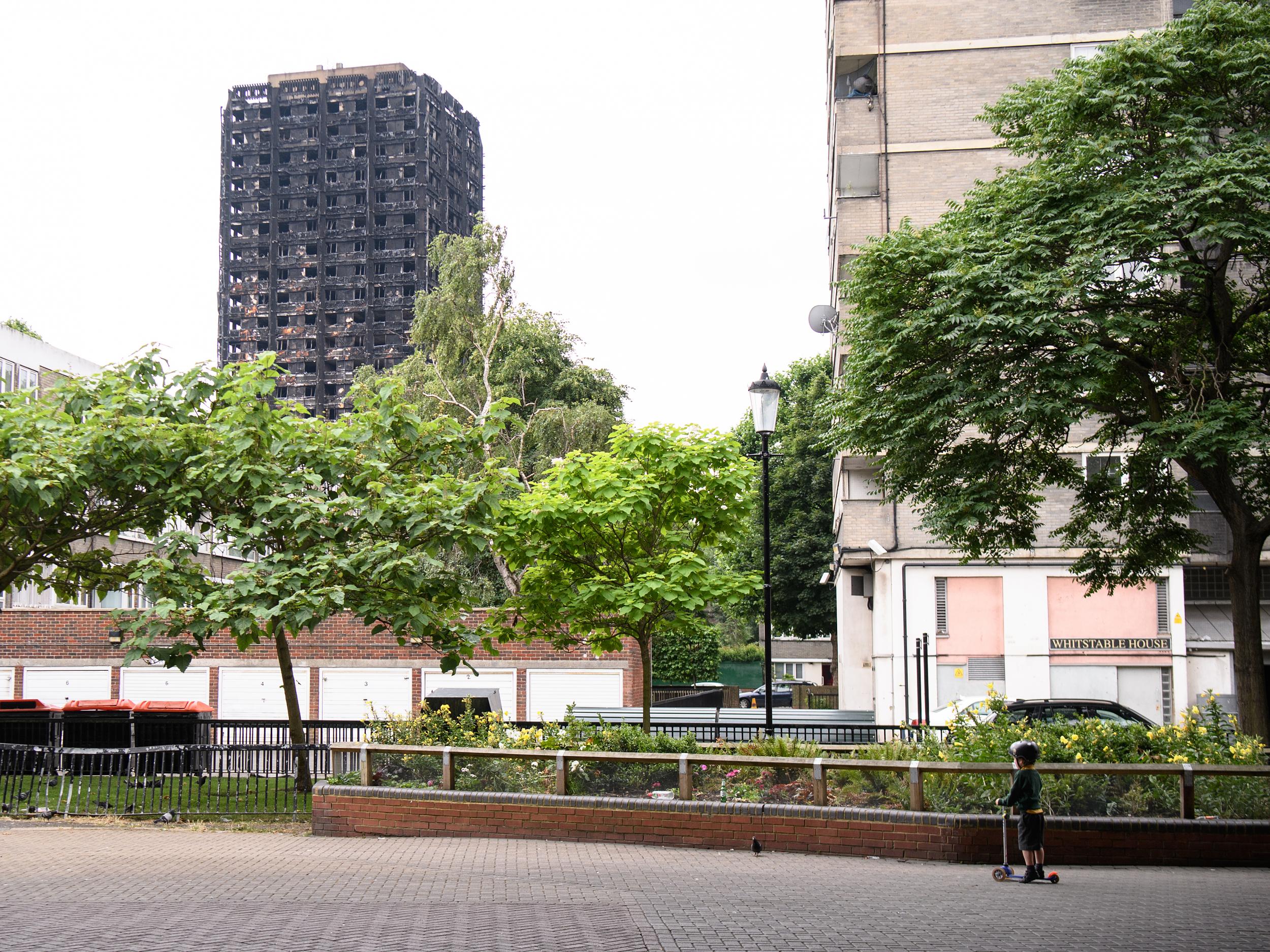Grenfell Tower survivors resort to hunting houses themselves amid frustration at council
'My wife is still in hospital — they will not give her to me unless we have a place to live,' says former resident

Your support helps us to tell the story
From reproductive rights to climate change to Big Tech, The Independent is on the ground when the story is developing. Whether it's investigating the financials of Elon Musk's pro-Trump PAC or producing our latest documentary, 'The A Word', which shines a light on the American women fighting for reproductive rights, we know how important it is to parse out the facts from the messaging.
At such a critical moment in US history, we need reporters on the ground. Your donation allows us to keep sending journalists to speak to both sides of the story.
The Independent is trusted by Americans across the entire political spectrum. And unlike many other quality news outlets, we choose not to lock Americans out of our reporting and analysis with paywalls. We believe quality journalism should be available to everyone, paid for by those who can afford it.
Your support makes all the difference.Grenfell Tower survivors have resorted to searching for new homes privately out of frustration at the council's rehousing efforts two months after the fire.
Kensington and Chelsea Council said the vast majority of those who escaped the blaze, 158 households, remain in hotels, while no-one has yet secured permanent accommodation.
Dissatisfaction at the temporary properties being offered by the authority has led some survivors to take matters into their own hands.
Nicholas Burton, a leaseholder who was one of the last to escape the inferno with his wife on June 14, said the council had shown him houses too far away or in a poor state of repair.
“I could have put up every single family in 48 hours if you just go to the private sector. There are hundreds of flats in the estate agents but they don't want to pay the money,” the former 19th floor resident said.
“But they are paying the money because my five weeks in my hotel cost £12,990. I have the bill. They gave it to me by mistake.
“I had to go and get private accommodation because my wife is still in hospital and they will not give her to me unless we have a place to live.
“I am sure one or two other families have decided they cannot wait any more. Those with children have September coming shortly and they are going back to school — they do not want a hotel room.”
The 50-year-old said his lease stated that the council's insurance would have to cover any rent in the event of his flat becoming uninhabitable.
At least 80 people died when the blaze devoured Grenfell Tower, the charred skeleton of which still looms over the west London neighbourhood.
Theresa May initially said in the aftermath of the fire that she had “fixed a deadline of three weeks for everybody affected to be found a home nearby”.
Her comments were later clarified by Communities Secretary Sajid Javid, who claimed the deadline was for every survivor to have received an offer for a temporary new home.
While all of those forced to leave the 24-storey block and nearby Grenfell Walk have since been offered temporary accommodation, only 23 families have been rehoused, while 22 others have accepted offers.
A council spokesman said in many of these cases, residents “have the option to convert to permanent housing if they would like to”.
Homelessness charity Shelter, which has been working with survivors of the tragedy, said many people were staying in hotels because they were reluctant to move twice.
Head of policy and research Kate Webb said: “I think a lot of people are not ready to think about moving into temporary accommodation — they want time to grieve and they want a permanent home.”
Pointing to a previous suggestion by the Government that more than 60 luxury apartments in Kensington would be offered as permanent accommodation from July, she added: “I think it is disappointing that the homes weren't made available quite as quickly as people were told they would be.”
Displaced residents were given a promise by the council that they would be rehoused permanently within 12 months.
Bereaved families will be prioritised during this process, along with those suffering from serious mental, physical or learning disabilities and those in need of a carer.
A spokesman for the council said: “It will take a long time for offers to be accepted because of the highly emotional state of those we need to house and the complexity of their needs.
“It is a painstaking process and one that requires understanding of families traumatised by the fire.
“It involves not only finding the right property for a family but also making sure emotional and psychological support, schooling, education and health support is provided.”
Join our commenting forum
Join thought-provoking conversations, follow other Independent readers and see their replies
Comments